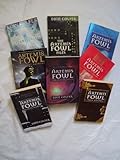Diwali, India's Glittering Festival Of Lights!
Language
Reading Level
Listen to Article

India is known for many colorful and fun festivals. But none are as popular as Diwali, a festival that spans over five-days and extends across many cultures and beliefs. It is therefore not surprising that the ancient observance, which is also referred to as Deepavali, (row of lights) is the biggest and most eagerly awaited of all Indian celebrations.
The festival, whose date varies according to the lunar calendar, began on Tuesday, October 21st, with Dhanteras. For those that love to shop, this is the best day of the celebration. That's because, in addition to paying homage to Lakshmi, the Hindu goddess of wealth, the day is also considered auspicious for buying everything - from gold and silver ornaments to new clothes and utensils.
The following day is Kali Chaudas or Narak Chaturdashi. For some Indians, it is merely the day before Diwali and celebrated with good food and fireworks. For others, it is an occasion to drive out demons or evil spirits from homes by performing various rituals. No matter how it is celebrated, everyone's mind is already focused on the big day that comes after - Diwali!
Diwali begins with a visit to the temple (for Hindus and Jains) or gurudwara (for Sikhs). After the prayers are done, families and friends get together and celebrate by exchanging gifts and sweets. Those that missed the opportunity to buy gold on Dhanteras make up for it, by visiting the jewelers on this equally auspicious day.
In the evening, households across the country light up their homes with diyas (small oil lamps) and laden their dining tables with scrumptious Indian delicacies. Then starts the real fun - fireworks! What makes the displays exciting is that everyone gets to create his/her own show by lighting up their favorite fireworks. The young ones stick to the sparklers, while the teens and adults gravitate toward the louder, more powerful illuminations. The commotion continues late into the night until every last firecracker has exploded.
The folklore behind the origin of Diwali differs in every State. Some believe that Diwali was first celebrated by the residents of Ayodhya to mark the return of their king Rama, his wife Sita and brother Laksmana, following a 14-year-long exile imposed by the king's mother.
Others believe it ensued following the taming of a goddess who after finding it difficult to control demons through conventional warfare, decided to go on a rampage that not only destroyed the evil spirits but also, threatened to wipe out every living creature on earth. It was just when her husband, Lord Shiva intercepted, that she came to her senses and stopped. While the tales of the origins of the festival may vary, they all celebrate the victory of good over evil!
For some Indians, Diwali also marks the end of the calendar year. On Friday, October 24th, they will celebrate the first day of the year 2071 - The reason their calendar is 57 years ahead of the conventional one, is because it is based on the shorter lunar cycles. The fifth and final day of the festival honors the bond between brothers and sisters and is celebrated with more special food and prayers.
For kids that live in India, Diwali is like Christmas, except earlier. They get a week's vacation from school, receive gifts from their parents and other relatives, wear beautiful clothes, eat great food and get to play with fireworks! It is no wonder that most kids consider Diwali the best festival of all.
Happy Diwali!
Resources: About.com, BBCnews.com, huffingtonpost.com, in.lifestyle.yahoo.com
Cite Article
Geography
Learn Keywords in this Article
319 Comments
- SOMEONEabout 9 yearsI have to read this.. duh it's school anyways it's cool though
- X_Xover 9 yearsthis is amazing
- jeffover 9 yearsits amazing
- my name is jeffover 9 yearsthis looks amazing
- Unknown Personover 9 yearsI like that
- summerstarover 9 yearsI take hindi classes every Friday so I know what Diwali means. I LOVE INDIA!!!!!!!!!!!!!!!!!!!!!!!!!!!!!!!!!!!!
- wonderfulwinx17about 9 yearsme too
- lillydogoover 9 yearsawsome love india
- lillydogoover 9 yearsproud to be indian
- lillydogoover 9 yearsdear 21 and WAFFLE'S, pls give respect to all religions
- WAFFLE'Salmost 10 yearsI agree with 21




